The Wandering Mind - How To Coach Players With Short Attention Spans and Keep Them Highly Motivated and Laser-Focused
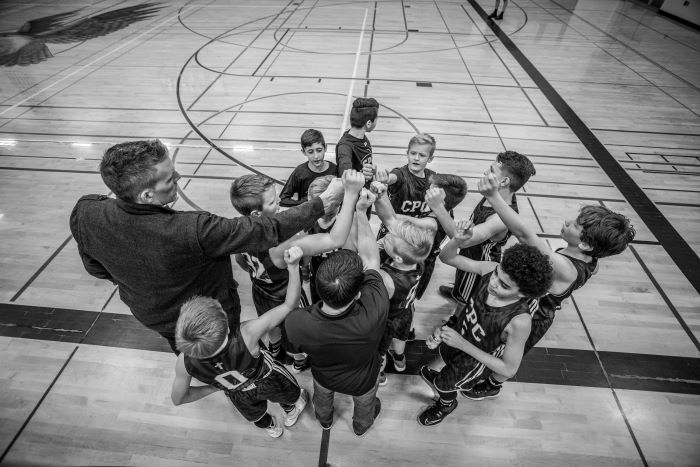
As you could probably guess, overcoming short attention spans is something I get asked about all the time...from both coaches and parents.
Of course, the widespread use of smartphones and social media, as well as the consumption of short but entertaining video clips on apps like TikTok and Instagram, has thrust the issue of attention spans to the front of peoples' minds.
And over the years I've learned some powerful techniques that have really helped improve my players' focus, learning, and motivation...allowing them to grasp concepts more quickly as well as improve motivation and effort in practice.
But rather than just offering some practical tips (which I'll also do)...I think it's also critical to cover some basic human psychology related to learning, attention, and motivation.
From my experience, it's very helpful to understand the underlying psychological factors that contribute to shortening a player's attention span...
Because without understanding these factors...it's sort of like trying to solve a problem without first knowing the causes of the problem.
In this article, I'll talk about 3 important aspects of learning and motivation (attention residue, working memory, and dopamine), and how we can tailor our coaching to work with human psychology rather than against it.
In this article, you'll find:
- Attention Residue - Why Many Coaches Teach Too Many Concepts At Practice and What To Do Instead
- Working Memory and How Emphasizing Less Might Be More Effective
- Dopamine and 3 Tips To Improve Motivation and Focus
Let's get started!
"Attention Residue" - Why Many Coaches Teach Too Many Concepts At Practice and What To Do Instead
"Attention residue" is a phenomenon that psychologists have only recently begun to understand.
It's a term that was coined a little over a decade ago to help explain why humans find it difficult switching from one task to another...
Because a "residue" of our attention is still focused on the first task.
This was a concept introduced in an influential 2009 article written by University of Washington professor Leroy...who explained:

Attention residue is closely related to our subconscious mind. Recent research has shown that after working on a task or problem...our subconscious mind continues to work on that task.
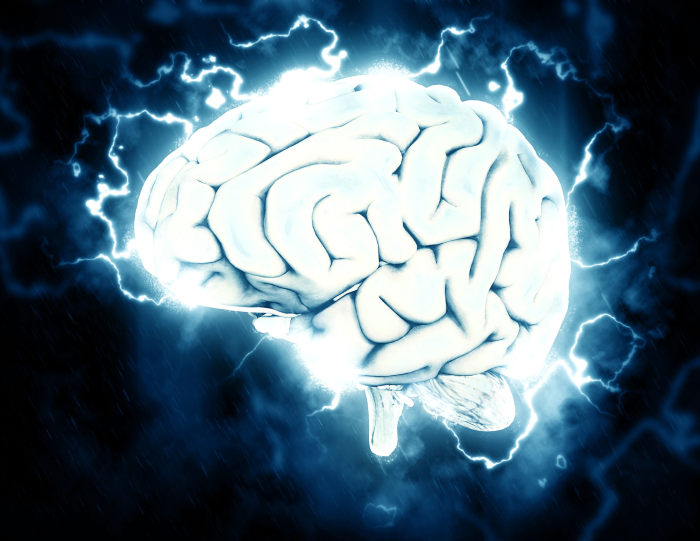
This is why...if you've ever been stuck trying to solve a problem, one of the best things you can do is stop trying to solve it! Oftentimes, getting away from the problem allows our subconscious mind to figure it out for us!
Have you ever experienced going to bed with a problem that you can't solve... then in the morning, you magically wake up with the solution? That's an example of this.
As Stanford Neurobiologist Andrew Huberman explained on his popular Huberman Lab podcast, recent research has shown that after trying to learn a new concept or a new physical skill...our brain will actually repeat that task at an astounding 20x the regular speed!
But this only occurs if the brain is given a period of rest immediately following the task!
He explained it like this:
"Basically the repetition continues while you rest, but at 20 times the speed. If you were normally getting just 5 repetitions per 10 seconds now you multiply that times 20. In the rest period you've practiced it 100 times. Your brain has practiced it [100 times], and we know this because they were doing brain imaging....This is an absolutely staggering effect."
This also helps us understand "attention residue"...because after learning something new our subconscious mind is still working on processing that information...
And research shows that it does this best during periods of rest immediately after the task.
Of course, during a practice session it's simply not possible to stop practice and give players time to do nothing to absorb a new instruction...there's simply not enough time.
But what we can do to help our players is not overload them with too much instruction.
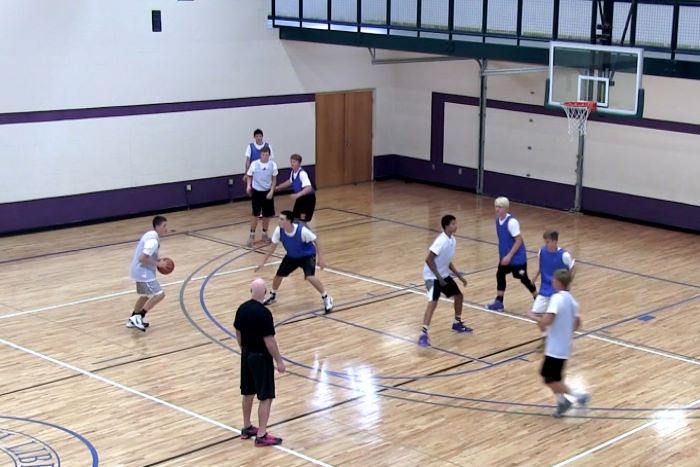
During practices, it's best to limit the number of NEW mentally demanding concepts you want them to learn to just one or two...because as the practice goes on, their ability to retain the instruction will decrease.
I typically focus on one concept for offense and one concept for defense in a single practice.
From my experience, this is just enough information for them to both grasp and execute a concept...as well as retain that information...
So that by next practice...they're ready to not only take on a new concept, but they can also execute on the prior concept.
This practice of integrating past concepts with new ones to optimize learning is called "retrieval practice."
So, for example, on Monday you might introduce an offensive concept like attacking Drop pick and roll coverage and work on it in-depth...
Then, on Tuesday you might teach a completely different offensive concept like penetration reaction, but revisit attacking Drop PnR for a few minutes. On Wednesday you might not touch on it all, and then on Thursday go back to more in-depth teaching on attacking Drop PnR for 30-45 minutes.
So, to sum up...sticking to just one main concept per practice minimizes "attention residue" and gives players enough time in between sessions to fully "download" the new concept...
While "retrieval practice" reinforces your teaching through additional repetition at a later practice...and gives players the opportunity to demonstrate that they've fully grasped your instructions.Of course, this requires careful planning of each practice (even planning a coordinated series of practices) to avoid "cramming."
This is especially true when coaching youth basketball and high school basketball as well.
Also...this same basic concept holds true not just for introducing new concepts...but also for giving feedback on specific drills.
Providing too many teaching points at the start of a drill (or providing too much feedback during the drill) can prevent a player from absorbing the most important take-away...
That's why I recommend focusing on the one thing you really want them to get out of the drill.
In other words, whatever teaching points you want to incorporate into a drill, don't chase other teaching points when a player makes a mistake outside of the scope and sequence...
It's easy to fall into the coaching trap of correcting a player through every technical and tactical error.
Instead, if a player makes a mistake within a teaching point...stop and provide them feedback. If a player makes a mistake outside of the teaching point, let the player carry-on.
Ok, let's move on to the related concept of...
Working Memory and How Emphasizing
Less Might Be More Effective
This is a fairly simple but profound psychological phenomenon... and having a better understanding of how it works has really helped me improve the effectiveness of practice time.
Working memory is simply a person's short-term ability to retain different pieces of information...and then be able to apply them in the present.
Or as Psychology Today defines it:

This would include things like...remembering a person's phone number while putting it into your cell phone...or a basketball player's ability to retain the instructions of a drill and then executing them.
Our working memory is almost exactly like a computer's RAM (Random Access Memory)...which is the short-term storage that a computer uses to access data immediately (as opposed to its hard drive, which is used for long-term storage).
And just like a computer's RAM, our own working memory has a limited number of slots for us to hold on to information...
Once we reach the full capacity of our working memory...our brain automatically begins to make room for new information by kicking-out the older stuff.
And it's important to remember that kids (and adults) with ADHD generally have fewer slots in their working memory...you can read more about this connection here and here.
So what do we do with this information when dealing with our players?
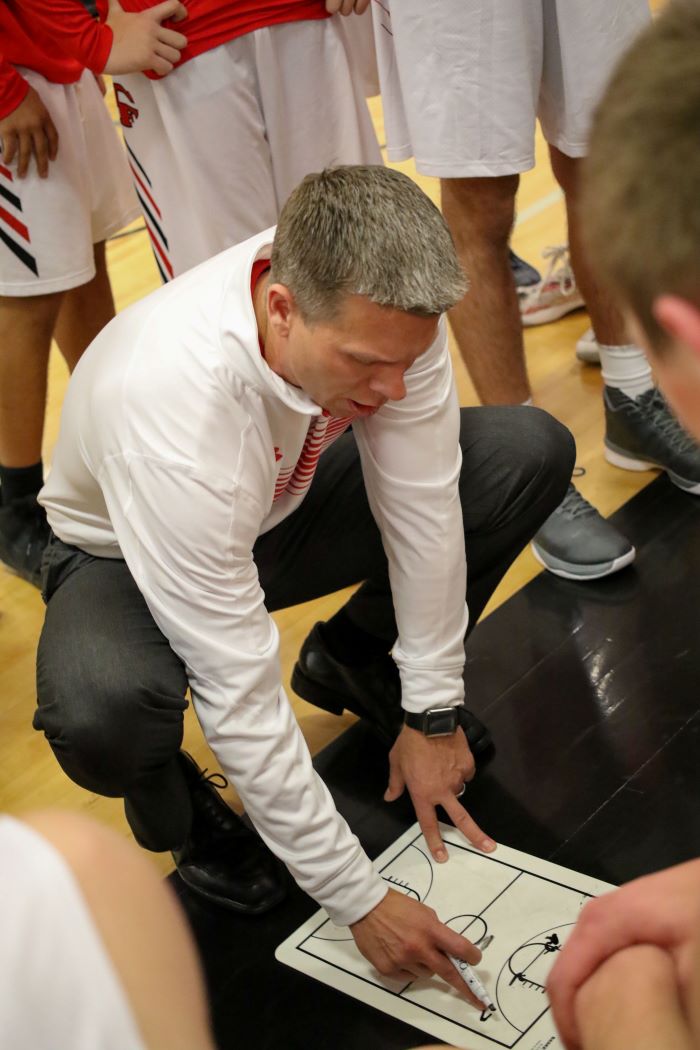
We've all experienced players looking back at us with their eyes glazed-over while we're trying to teach a new offensive concept.
And we've all been guilty of stopping practice and going off on a teaching point for far longer than was necessary.
One change I've made so that my instruction is more compatible with players' working memory is to get in the habit of providing quick feedback on mistakes...feedback that's to the point and captures only the most important change I'd like them to make...
After providing this quick feedback...it's important to immediately give the player the opportunity to apply that feedback.
Remember...working memory is not just short-term memory...it's short-term memory PLUS the ability to use that information.
From my experience it's important to give feedback in 30 seconds or less...and then give them a chance to apply your instruction. If it takes longer than 30 seconds you run the risk of players forgetting your central teaching point.
In general, I try to follow the advice of Coach Peter Lonergan, Basketball Australia's Director of High Performance Coach Development:

Another technique you can use to work with players' working memory is to dedicate the skill development portion of practice to drills that require minimal instruction and simulate real-game situations so that players can spend more time playing rather than listening.
NBA Skills Coach Don Kelbick's drills that boil the game down to just 3 pivots and 3 counters would be a good model for this and follow them up with some game-based drills.
Ok, now let's talk about...
Dopamine and 3 Tips To Improve Motivation and Focus
Dopamine is a chemical in the brain that's most commonly associated with delivering feelings of pleasure.
It's a "feel good" chemical.
Most people think of dopamine in terms of "hits"...
For example...eat a piece of chocolate...get a dopamine "hit"...
Listen to your favorite song...dopamine "hit"...
In fact, there's been a craze recently of people taking ice baths or cold showers largely because recent research has shown that they trigger a massive dopamine response that can last up to a few hours.
While thinking of dopamine as a "feel good" chemical is not entirely wrong...it's actually far more complex than that...
And full disclosure...I'm not a neurologist...so I don't fully understand its complexity myself!
But what I do know is this...
In addition to dopamine being released when we experience something pleasurable...it's also released to boost motivation and concentration so that we have the energy and desire to pursue a goal.
As Stanford neurobiologist Dr. Andrew Huberman explained on his Huberman Lab podcast:
"Dopamine has everything to do with your level of motivation, your level of desire, and your willingness to push through effort" and "is responsible for movement, motivation and drive."
He went on to add:
"If you've ever felt lethargic and just lazy with no motivation or drive, that's a low dopamine state."
In fact, dopamine is so vital to motivation that if the chemical is blocked in rats they lose all desire to eat...and even live!
Author James Clear summarized this research in his book Atomic Habits:
"...researchers blocked the release of dopamine, [and] to the surprise of the scientists, the rats lost all will to live. They wouldn't eat....They didn't crave anything. Within a few days, the animals died of thirst."
Pretty powerful stuff!
But it doesn't end there...
Dopamine is also vital to concentration, focus, and learning, which Dr. Michael Frank of Brown University explains in this interview. If this interests you, you can read Dr. Frank's influential 2020 article which was published in the prestigious journal Science.
So, what can we do to help increase this vital chemical in our players?
Or asked another way...what can we do to ensure we aren't contributing to decreases in their dopamine?
I have three recommendations...
First, encouraging your players to limit their screen time on smartphones can actually go a long way.

This is because scrolling through social media results in small bursts of dopamine that can add-up over time and actually reduce overall levels of dopamine...resulting in a lack of motivation and focus during practice.
You see, even though our brains naturally make dopamine on their own...we can use up that dopamine faster than our brains can create it.

This season we challenged our team to limit their screen time to under four hours per day. And at the end of each week, the players would send a screenshot of their screen time.
Shockingly, after the first week one player had actually spent over 28 hours on TikTok alone!!
After a few weeks of our "Screen-time Challenge" I could notice a significant difference in the players' discipline and focus.
So encouraging your players to limit their screen time is one way to help ensure players don't show up to practice with their motivation and focus already depleted.
A second strategy I recommend is to try to make the game fun.
I know that sounds simple, but it can go a long way...
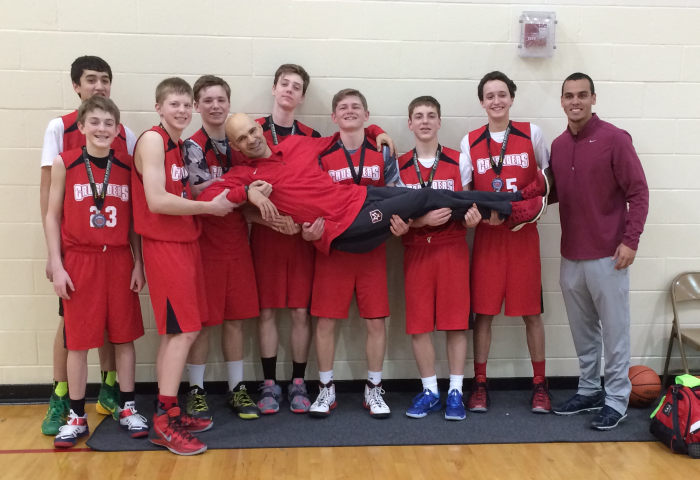
Because if something is fun, not only will players' dopamine levels rise as they're engaged in it...but dopamine levels will also rise beforehand in anticipation of playing.
This can be done through both large-scale changes like implementing a fast-paced and fun-style of gameplay...as well as small-scale changes like using game-based drills during practice.
I've found one of the best ways to make practice fun is to use game-based activities that simulate a gameday environment.
I personally like 3v3 games...because small-sided games have less players involved which means that each athlete will not only receive more physical touches with the ball...but they'll also be presented with more "mental touches" on defense as well.
Making these game-based activities a competition in practice will also help boost concentration and focus.
My third recommendation is really more of a general piece of advice than a specific tip.
And since you've made it this far in the article, it likely doesn't apply to you!
But I think it's important to put genuine care and attention into devising systems and practices that develop your players' overall abilities and skills...
Because if they recognize that their hard work is actually paying off...and translating into tangible results...this will work wonders on their motivation and desire to work even harder in practice.
Well, that's all for today!
I hope you were able to get some useful information that you'll be able to apply when coaching your players.
We'd also love to hear you input! Have you implemented similar strategies? Have you used other strategies not mentioned? Are you going to add any of these approaches to your coaching toolbox?
Please leave your comments and suggestions below...
|
|||||



 Facebook (76k Likes)
Facebook (76k Likes) YouTube (85k Subscribers)
YouTube (85k Subscribers) Twitter (26k Followers)
Twitter (26k Followers) Q&A Forum
Q&A Forum Podcasts
Podcasts